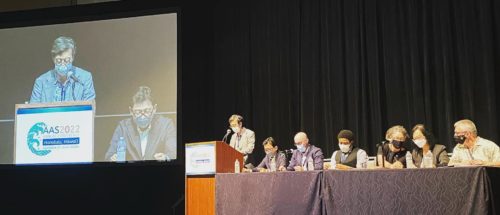Chinese mathematics rocked by fake academic paper scam
After comparing a number of math papers published by Chinese authors, an independent journalist discovered that 65 of them were products of a “paper mill,” which sold the papers to about 77 Chinese clients from 43 institutions.

From time to time, Chinese academia makes international headlines for the worst possible reasons. Scandals like the massive 2017 peer-review fraud, which involved more than 480 Chinese doctors and academics, and the case of a leading molecular biologist being accused of fabricating his gene-editing research, have seriously damaged the reputation of Chinese scientists, especially those in the fields of medicine and chemistry, which have been notorious fraud and research misconduct.
But a common belief among Chinese mathematicians was that their subject was immune to fraudulent research practices, mainly because unlike most scientific studies, fake math formulas are easily proven incorrect.
The reality, however, has turned out to be more complicated.
About two weeks ago, Leonid Schneider, an independent journalist based in Germany, revealed on his website For Better Science that after comparing a number of math papers published by Chinese authors, he discovered that 65 of them were products of a “paper mill,” which sold the papers to about 77 Chinese clients from 43 institutions.
Some of the clients were prestigious professors from first-tier universities in China, such as Sūn Jiànguó 孙建国, deputy director of the computer science and technology department at Harbin Engineering University, and Lǐ Zhìqiáng 李志强, deputy director of the business school at Henan University.
In addition to extensive copy-pasting and inventing formulas, Schneider found out that a main part of the papermill’s service was faking “European-university-affiliated and western-named” co-authors to make the math papers “seem less Chinese, or more white.” In a 2015 paper written by Zhāng Yùlián 张玉莲 from Henan Institute of Education, a person named Valery Piskarev was listed as a co-author and claimed to have an affiliation with the University of Wollongong. But when Schneider contacted the school, he was told that there was no record of Valery Piskarev as a professor, and that the “Science and Technology” department Zhang praised in the paper for its hospitality during her stay was actually non-existent.
The fraudulent papers also shared two common features:
One hallmark of this literature is the insertion of the name of Schrödinger (or “Schrödinger type”), not to invoke any of Erwin S.’s specific contributions to physics and mathematics, but more in the way of a talismanic Word of Power, transforming a purloined passage and asserting ownership of it.
Another hallmark of the workshop is a pleasingly symmetric construction, where the Abstract and Conclusions are almost identical, differing only in a change of tense: the former is aspirational, heralding what will be proven, while the latter is triumphant, reiterating what has been proven.
Schneider also noted that many of the authors were financially supported by provincial or national Natural Science Foundations, a government-backed funding system dedicated to “supporting basic research, fostering talented researchers, developing international cooperation and promoting socioeconomic development.”
“How they secured that funding without the capability to write the papers expected in return, thus obliging them to call on the services of a papermill, is a question in itself,” Schneider wrote. Commenting on the incentives behind the misconduct, Schneider continued, “The demands of administrative positions might be the reason why a couple of authors outsource their math productivity.”
So far, 21 of the 65 papers have been retracted by international scientific journals that published them. But only a few of the authors of the fraudulent papers have received punishment from their institutions. In February, when peer-reviewed mathematics journal Advances in Difference Equations retracted a paper by Yán Zhènhǎi 闫振海 a lecturer at Henan University of Economics and Law (HUFE), because of plagiarism, the school announced a internal investigation into the case, but no results have been made public. When the China News Weekly reached out to the university in light of new allegations raised by Schneider against other educators at HUFE, a school official said (in Chinese) that a new investigation was underway.






